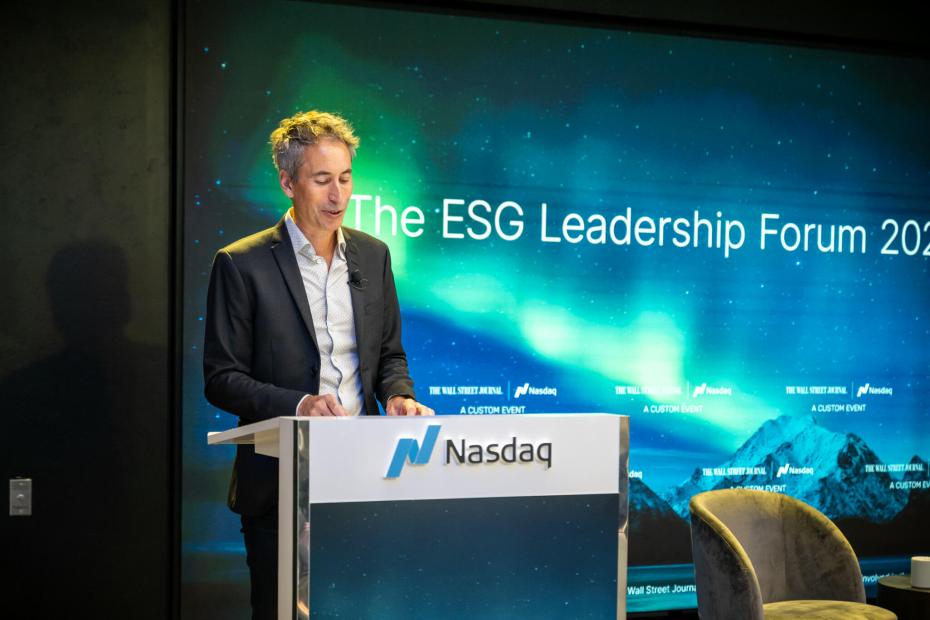To fully embed sustainability within a company, the board of directors must not only be engaged but also take a leadership role in ensuring that sustainability is a core component of corporate strategy. As highlighted by PwC in its guide on ESG oversight, “Sustainability and ESG oversight: the corporate director’s guide“, board members are increasingly expected to provide direction and accountability on ESG issues, ensuring that these concerns are woven into the broader corporate strategy.
Integrating Sustainability into Corporate Strategy
Moreover, leadership at the board level must align corporate purpose with strategy. This means not only ensuring that a company’s values and mission reflect its sustainability commitments but also that this purpose is consistently communicated throughout the organization. Companies like Patagonia and Ford Motor Company serve as prime examples of organizations where sustainability is at the heart of business operations, driven by strong leadership from the board and executive teams.
Risk Management and Accountability
One effective method to drive accountability is tying sustainability performance to executive compensation. This has been shown to motivate leadership at all levels to focus on long-term sustainability goals. As the Harvard Law School Forum points out, companies that link executive bonuses to sustainability targets see a more holistic commitment to sustainability across the organization.
Measuring and Reporting on Sustainability Performance
A board that is actively engaged in sustainability oversight will ensure that the company’s progress is not just in words but in action, backed by transparent reporting. This type of leadership is essential for building trust with investors, consumers, and employees alike, fostering a corporate culture that prioritizes sustainability in both strategy and practice.
Building a Sustainability-Focused Leadership Team
The board plays a pivotal role in shaping the composition of the leadership team, including ensuring that sustainability-minded leaders are in place. As sustainability becomes a more prominent factor in business success, boards need to consider this mindset when hiring CEOs and other senior executives. This involves looking beyond traditional business expertise and identifying leaders who understand the importance of balancing profit with environmental and social impact. Harvard Business Law highlights that more companies are recognizing sustainability as a key component of the business and commercial driver, offering financial benefits when integrated into corporate and investment strategies.
As the scope of sustainability broadens, organizations are increasingly looking for senior ESG 2.0 leaders with a global outlook, who blend deep ESG expertise with a business-oriented approach focused on value creation. These leaders are tasked with designing and executing comprehensive ESG frameworks that align sustainability initiatives with overall business strategies. These leaders are expected to embed ESG policies across all functions, ensuring consistent messaging and application, while also engaging external stakeholders—such as portfolio companies, operating partners, and supply chains—to support the development of sustainable business strategies within their organizations. According to Russell Reynolds Associates, 70% of newly appointed senior ESG leaders are female. This trend may be attributed to the fact that ESG leadership is a relatively new and evolving role, allowing companies to take a broader approach in their talent search. Additionally, it reflects the growing interest and involvement of women in shaping sustainable business practices, as they increasingly step into roles that drive environmental, social, and governance objectives.
Hiring directors who have a strong sustainability mindset and reporting directly to the C-Sute is equally critical. However, as HBR points out, the goal is not just to bring in a “sustainability expert” but to ensure that all board members have a shared commitment to sustainable values. This mindset shift will help boards integrate sustainability into all aspects of their governance role, from risk management to strategy development.
Incorporating these principles not only aligns companies with global sustainability goals but also ensures they remain competitive in an evolving market. As more investors and consumers seek out companies with strong ESG credentials, board leadership in this area will be key to future success.ESG leadership forums are being organized globally, and institutions like the Corporate Governance Institute and INSEAD are offering specialized executive programs to meet the growing demand for ESG leadership. These initiatives aim to foster the sharing of sustainability best practices and equip leaders with the skills necessary to drive impactful ESG strategies within their organizations.





